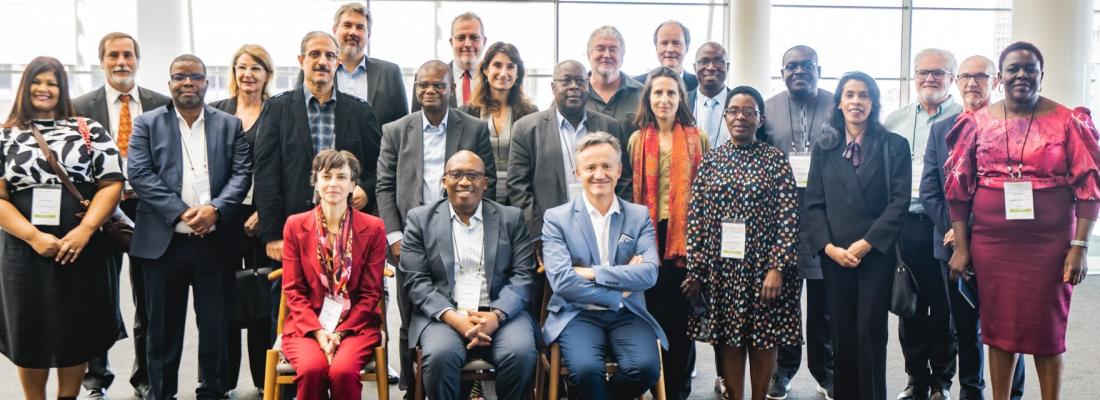Climate change and risks Reading time 4 min
The research initiative TSARA in partnership with Africa moves into action
Published on 06 December 2022

The TSARA initiative aims to stimulate a portfolio of original research, training and innovation projects, jointly developed by African and French institutions and that is both of high quality and geared towards impact and training for rural and urban actors, as well as support for public policies.
Since March 2022, 8 thematic groups have been working through webinars, each gathering up to 60 participants from the 19 members and with potential new partners, in order to draw up an inventory of scientific knowledge and to list the priorities to be addressed in the following areas: soil, water and forests under climate change; the agroecological transition of agriculture and livestock farming; food system sustainability; human, animal and landscape health; work and employment.
The work of these 8 thematic groups was presented at the General Assembly, providing the basis for TSARA's scientific agenda and its 2023-2025 action plan, to be implemented in the first half of 2023, and backed by a portfolio of research, training and support projects involving all stakeholders from all or part of the African territories. The results of this work are expected to help address major challenges in order to contribute to the sustainable development goals of the 2030 Agenda at global level, in Europe and in Africa.
This first General Assembly was also an opportunity to provide the TSARA initiative with a governance framework: an operational secretariat made up of 12 institutions, 10 African and 2 French, representing a great geographical diversity. The presidency will be ensured on the basis of a pair of co-presiding institutes. In 2023, CIRAD and ARC will take over the co-presidency for one year, followed by INRAE and IRSA at the next General Assembly, towards the end of 2023. It was also decided that an associate member status would be created to allow French or African research and/or higher education organisations to join TSARA.
By means of the contract of objectives and means signed with the French state in February 2022, INRAE is already devoting new resources to projects that will feed the initiative, including more than 400 k€ for incoming and outgoing mobility of scientists, start-up projects or projects promoting inter-knowledge in 2022 and 2023 in order to develop large-scale projects with all interested partners. All of INRAE's scientific divisions are mobilised. More than a dozen mobilities have been agreed upon or planned and as many start-up and inter-knowledge projects, backed by or in addition to existing structured partnerships.
For its part, CIRAD has been conducting research projects in partnership with African research institutions for more than 50 years, with more than a hundred large-scale projects under way to date. In addition, each year CIRAD allocates 300 k€ to 14 platforms in partnership for research and training between CIRAD and African partners, in order to respond to specific, jointly identified development challenges through research, innovation and training. Furthermore, around one hundred CIRAD researchers are working with or at African institutional partners.
These resources will enable TSARA partners to stand stronger together in order to present and win projects at European and international levels.
| Country | Signatories |
|---|---|
| South Africa | ARC |
| South Africa | University of Pretoria |
| South Africa | University of Western Cape |
| Burkina Faso | INERA |
| Burkina Faso | CIRDES |
| Cameroon | IRAD |
| Egypt | ARC |
| Kenya | ICIPE |
| Madagascar | University of Antananarivo |
| Madagascar | FOFIFA |
| Morocco | ENA Meknes |
| Regional - West Africa | CILSS |
| Senegal | Cheikh Anta Diop University |
| Senegal | ISRA |
| Tunisia | University of Carthage |
| Tunisia | IRESA |
| Zimbabwe | University of Zimbabwe |
| France | INRAE |
| France | Cirad |
